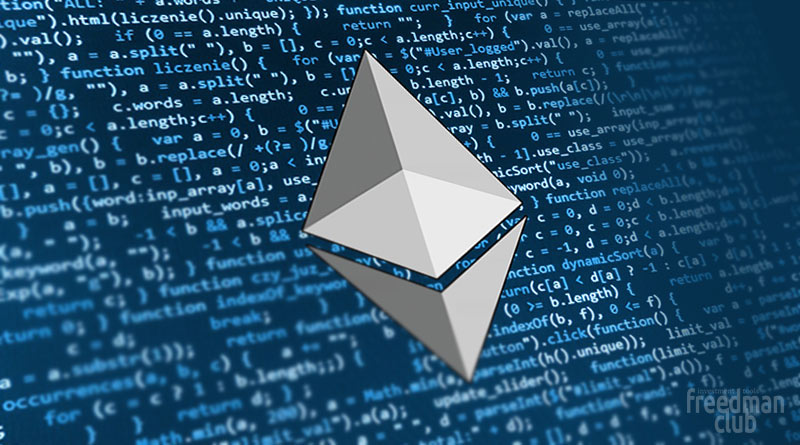Enterprise blockchain customers might not need to worry any longer about having picked the wrong platform to build on, thanks to a new interoperability solution being unveiled by Accenture. Revealed at the annual Sibos conference on Monday, the consulting giant has created an “interoperability node” which it says can house the business logic of different blockchains – in other words, the rules which allow them to perform various tasks. According to Accenture, the interoperability node can connect the four major enterprise platforms: Hyperledger Fabric; R3’s Corda; Quorum, developed by global…
Tag: Blockchains
ING Bank Launches Open Source Privacy Improvement Add-On for Blockchains
Dutch multinational banking and financial services corporation ING confirmed the release of its open source blockchain tool Zero-Knowledge Set Membership (ZKSM) in a press release Monday, Oct. 21. ZKSM, which functions as a privacy “improvement” to distributed ledger technology (DLT), such as blockchain, aims to provide validation of certain alphanumeric data without compromising that data’s overall security. According to ING, the tool allows a blockchain to confirm a piece of data belongs to a specified set, while not revealing its full characteristics. For example, as the press release elaborates, an…
Improving Ethereum (ETH) Is A Better Option than Creating New Blockchains
The ICO boom of 2017 and early 2018, ushered in a new era of individual blockchain projects that aimed to solve a lot of the issues on the Ethereum (ETH) network. The most prominent ones have so far released a final product in the form of a mainnet, with others in the last stages of launching one. This is best exemplified by Tron that recently launched its Mainnet, as well as EOS. Zilliqa on the other hand, is on the cusp of launching its Mainnet at the end of this…
Deloitte Outlines Five Major Obstacles to Blockchain’s Mainstream Adoption
“Big Four” audit and consulting firm Deloitte has outlined five basic areas of development for blockchain technology in order achieve widespread adoption, according to a study published September 28. According to Deloitte, in order to be adopted by enterprises on a mass scale, blockchain technology should overcome five major obstacles – the possibility of time-consuming operations, lack of standardization, high costs and complexity blockchain applications, regulatory uncertainty, as well as the absence of collaboration between blockchain-related firms. Identifying the area that needs the most development, Deloitte singled out the problem…
Two of Blockchain’s Biggest Consortiums Just Joined Forces
Seismic shifts are happening in the world of enterprise blockchain. Announced Monday, the Hyperledger Project and the Enterprise Ethereum Alliance (EEA) have agreed to collaborate on bringing common standards to the blockchain space and cross-pollinate a wider open-source community. This joining of forces is notable as EEA and Hyperledger represent two of the three largest and arguably most influential enterprise blockchain communities, the third being the R3 Corda ecosystem. If the team-up succeeds in creating common standards between the two platforms, it could sway enterprises previously on the fence to…
Two of Blockchain’s Biggest Consortiums Just Joined Forces
Seismic shifts are happening in the world of enterprise blockchain. Announced Monday, the Hyperledger Project and the Enterprise Ethereum Alliance (EEA) have agreed to collaborate on bringing common standards to the blockchain space and cross-pollinate a wider open-source community. This joining of forces is notable as EEA and Hyperledger represent two of the three largest and arguably most influential enterprise blockchain communities, the third being the R3 Corda ecosystem. If the team-up succeeds in creating common standards between the two platforms, it could sway enterprises previously on the fence to…
When Blockchains Go Down: Why Crypto Outages Are on the Rise
Berniesanders (not to be confused with former presidential candidate and Vermont Senator Bernie Sanders) is an institution on blockchain-based blogging platform Steemit. Steemit allows content creators to earn crypto – at least, crypto that’s native to the Steem blockchain, of which there are three – for popular posts. While recent successes include waffle recipes, romantic fiction and crypto punditry, berniesanders gets a pretty steady paycheck (about $30 at a time) for his single sentence, self-described “shit posts.” A recent sampling: “Are you having fun? I’m having fun.” ($60), “I’m on a boat!”…
One of Investors’ Favorite Governance Blockchains Is Handing Over $20 Million
Governance is one of the hottest topics in crypto right now – and Decred developers’ take is that the community should decide. And, by way of the release of a communication tool called Politeia, they will soon be giving that community $20 million in DCR tokens to manage. Stepping back, Decred was built by a startup called Company 0, which has among its ranks developers that go back to bitcoin’s early days. For instance, Decred’s CEO Jake Yocom-Piatt built btcsuite, a software for interacting with bitcoin using Google’s programming language, Go, with…
R3’s Hearn and Brown Say Enterprise Blockchain’s Day of Reckoning Is Here
This space ain’t big enough for all of us. That about sums up the way R3’s technical chiefs, CTO Richard Gendal Brown and lead platform engineer Mike Hearn, view the rivalry among enterprise blockchain solutions. While it may be more genial and less chaotic than the public blockchain world that Hearn left behind when he quit work on bitcoin in 2016, enterprise tech is still a competitive business. And speaking to CoinDesk last week during R3’s CordaCon event in London, the two executives described this game as, if not quite…
Blockchain’s Popularity Among Large Enterprises Soared 11% This Year, Survey Finds
New research from fintech analysts Juniper House has found that blockchain’s traction with large enterprises has risen by 11 percent this year, according to a press release published September 11. Juniper’s Blockchain Enterprise Survey: Deployments, Benefits & Attitudes (Second Edition) found that 65 percent of responding large enterprises – defined as those who employ a minimum of 10,000 staff – are “considering or actively engaged” in blockchain deployment, up 11 percent from the corresponding 54 percent figure last year. Further data analysis shows that nearly a quarter of firms have…









